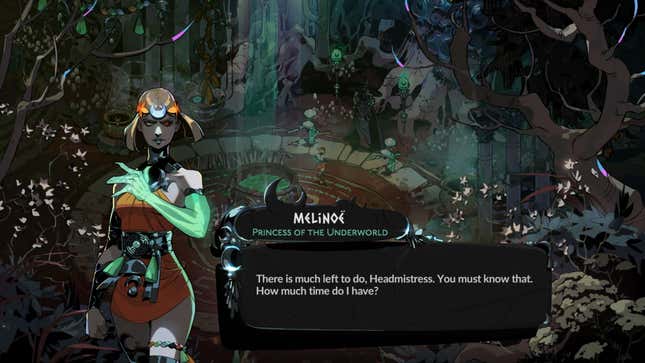
Every Friday, A.V. Club staffers kick off the weekend by taking a look at the world of gaming, diving in to the ideas that underpin the hobby we love with a bit of Game Theory. We’ll sound off in the space above, and invite you to respond down in the comments, telling us what you’re playing this weekend, and what theories it’s got you kicking around.
There are, at present, more than 11,000 games available on video game marketplace Steam carrying the label “Early Access.” It’s an official designation at the digital retailer, indicating that the game in question is in some degree of unfinished state, and that developers are simply making what they have, at the moment, available to purchase—with all the caveats that buying an incomplete game obviously carries with it. It’s a bit of an odd designator, though, given that some of these games have been available in this state for more than a decade at this point (looking at you, Project Zomboid), often selling hundreds of thousands of copies in the process, and frequently offering much more expansive content than any number of “completed” games. And it occasionally has its pitfalls.
We got to thinking about Early Access recently thanks to something we kept running into any time we tried to talk to people about Supergiant Games’ extremely good Hades II, which released in Early Access back on May 6: “I’m waiting until it comes out of Early Access.” Makes a certain kind of sense: There’s something very dissatisfying about getting into the groove with a video game, only to smack straight into a big STOP sign because there’s no more road to drive. The thing is, though, despite a few instances of lingering placeholder art, and some obvious points where epilogue material could be added on, Hades II feels very much like a finished game in the hands—enough so that we’ve played more than 20 hours of it and are still finding new areas, fights, weapons, and more to sink our teeth into. At no point during our time with it have we thought, “Oh well, Early Access, right?”
That’s in marked contrast to the game’s predecessor, Hades, which did arrive in a blatantly unfinished state when it hit the marketplace in 2018, literally killing heroic princeling Zagreus in hilariously abrupt fashion any time he got past the latest completed level. Hades felt like a very traditional—and successful!—implementation of the Early Access model, allowing Supergiant, which publishes its own games, to bring in revenue while development of the game continued, while also serving as its own advertisement for the game’s eventual full release. (Which came in 2020, winning tons of awards, sales, and deluges of very, uh, “enthusiastic” online fan art in the process.) It was an acknowledgment that making games is a monumental effort, and that the need to have a polished, finished product ready to go to market before you can start reliably paying your employees might not be a sustainable practice.
It’s not hard to imagine that massive success influencing how the Early Access release of Hades II went; we have to assume Supergiant, sitting on a hit, had a bit more leeway for how shiny they could get their new game before needing to subject it to the public’s hungry stares. But it’s created a strange effect where, in at least a few anecdotal cases, the “Early Access” tag is fending people off from playing what is, to our eyes, a complete game experience: Hades II is a phenomenally good game now, a refinement of what’s come before that also adds exciting new tweaks to the formula. And while we’re sure further development will flesh out some of its edges, the idea that people who love this franchise are denying themselves the experience because they’re waiting for a more “finished” one is maybe even a little sad.
It’s all of a piece, too, with an increasingly unavoidable philosophy in games, that no really successful game is ever really finished. (Or an unsuccessful one—look at the way shuttered studio Arkane Austin recently moved heaven and earth to try to get one more big content patch for their much-derided online shooter Redfall out the door before Microsoft shut off the lights.) As a way to create the fabled Forever Game (the one players will continue playing, with minor tweaks, from now until they die, continually pumping new attention into its economy), Early Access is a lot less ugly than, say, the games-as-service model adopted by most of the big publishers at this point. (The part where you pay once, and have the game forever—novel, we know—being a major, uh, selling point.) In its basic form, Early Access is really just a promise that “More is coming,” which feels almost redundant in a gaming landscape where more is always coming. (Was, say, Elden Ring in “Early Access” when it arrived in 2022, receiving multiple massive, game-changing patches in the weeks and months after its release?) But it can also be a double-edged sword, telling players your game isn’t “really” finished, even when there’s an incredibly satisfying experience to be had there.
Anyway: Play Hades II.